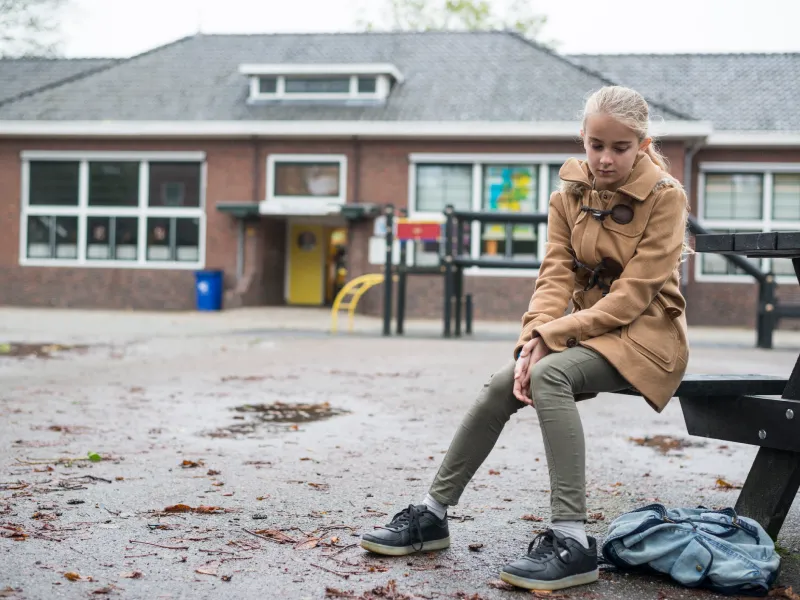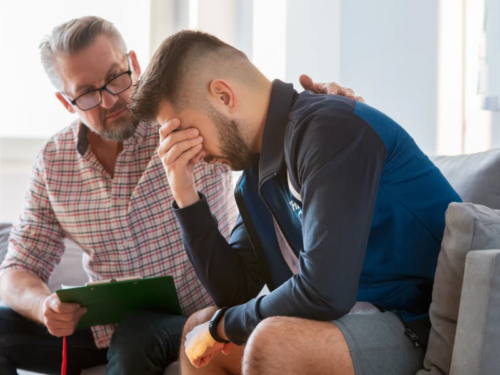
Table of Contents
What Are Adverse Childhood Experiences (ACEs)?

Written By: Dr. Rasna Kaur Neelam

Clinically Reviewed By: Dr. Don Gasparini
Updated: December 8, 2023
4 min.
ACEs are traumatic events that occur during childhood that can have a lasting (and negative) impact on young people's physical and mental well-being.
Learn more about our Clinical Review Process
Table of Contents
Adverse childhood experiences (ACEs) are negative or traumatic experiences that happen during childhood, usually defined as before the age of 18. Unfortunately, these events are common. A 2019 study by the Centers for Disease Control and Prevention (CDC) found that over 60% of adults surveyed reported experiencing at least one ACE. The study also showed that ACEs are associated with negative mental and physical health consequences—a finding long substantiated by research. Below, we explore examples of ACEs and their impacts, plus how to heal from childhood trauma.

You can heal from childhood trauma
We offer virtual, trauma-informed therapy from the comfort of your home.
What are the most common causes of adverse childhood experiences?
ACEs can happen at home or in a community, and they often co-occur, meaning a young person may experience multiple ACEs simultaneously, increasing the risk of negative outcomes later in life. Although this list is not exhaustive, some of the most common causes of ACEs include:
- Child abuse, including emotional, verbal, sexual, or physical abuse
- Neglect, including a lack of emotional support or physical needs not being met
- Loss of a parent or primary caregiver due to death, divorce, or incarceration
- Witnessing violence inside or outside the home
- Growing up in a home with people struggling with substance abuse
- Growing up in a home with people struggling with mental health conditions
- Other forms of toxic stress or adversity faced during childhood in the home or community
Who is at risk of having an adverse childhood experience?
ACEs can affect any child, regardless of their background. However, certain circumstances can elevate the risk of negative or traumatic childhood experiences. Past research focused largely on individual and family risk factors, concluding that material family hardships, substance abuse, and unemployment put children at a higher risk for ACEs. However, many studies have concluded that systemic inequities contributed to these findings more than inherent risk.
Specifically, the CDC found that the historical, social, and economic inequities that some families face can elevate the risks of a child experiencing ACEs. While growing up in a household with violence, substance use issues, or mental health problems is still linked with ACEs, the CDC finding suggests that interventions on a systemic level are among the most effective in preventing ACEs.

Adverse childhood experiences and negative health outcomes
Research consistently shows that children who have a history of ACEs are more likely to have problems into adulthood. In other words, childhood trauma can take a toll on well-being, leading to negative physical and mental health outcomes. Below are some of the key health consequences associated with ACEs.
Mental health conditions
ACEs are strongly linked to mental health conditions, including depression, anxiety, and post-traumatic stress disorder (PTSD). For example, one national study of nearly 35,000 Americans ages 20 and older found that adults who faced childhood adversity have higher chances of experiencing mood, anxiety, and personality disorders. Also, the more types of ACEs someone has experienced, the higher the likelihood of personality disorders and somewhat higher chances of anxiety disorders, the study found.
Behavioral health issues
Engaging in risky behaviors, like sexual risk-taking and problematic drug and alcohol use, is linked with ACEs, research shows. An analysis of nearly 40 studies on ACEs found that adults who faced childhood adversity (especially those who experienced multiple ACEs) were at risk of adverse outcomes such as drug use, strong sexual risk-taking, and violence against themselves and others.
Physical health issues
That same study found that people with multiple ACEs are at a higher risk for physical health conditions, including cancer, heart disease, and respiratory diseases. These findings substantiated existing research that ACEs can negatively affect people’s well-being, including their physical health.
Life opportunities
ACEs may negatively impact adult life, including education, work, and income. A study analyzing data from across the United States found that those exposed to ACEs were more likely not to finish high school, be unemployed, and live in poverty.
How are adverse childhood experiences treated?
Although ACEs can have serious consequences, with proper treatment and intervention, adverse health outcomes are not inevitable. Research and public health fields have long emphasized that ACEs are preventable. In other words, one of the best ways to treat the adverse effects of ACEs is by preventing them altogether. Studies recommend additional screening in schools and doctor’s offices to identify children at risk for ACEs and connect them and their families with early intervention programs. According to the CDC, this could look like teaching parenting skills, strengthening economic support for families, connecting young people to caring adults and activities, and promoting social norms that protect against violence. Any of these interventions is considered a protective factor, meaning it reduces the likelihood of ACEs.

For those children and adults who have endured ACEs, psychosocial interventions, like therapy, have proven to be an effective form of treatment. An analysis of 99 studies on ACE treatment found that cognitive behavioral therapy (CBT) demonstrates the strongest evidence in improving mental health and reducing health-risk behaviors. Expressive writing and mindfulness-based therapies also show promise, according to the analysis.
Support for adverse childhood experiences at Charlie Health
If a young person in your life has dealt with child abuse, household dysfunction, or another kind of traumatic experience, Charlie Health is here to help. Charlie Health’s virtual Intensive Outpatient Program (IOP) provides more than once-weekly mental health treatment for young people dealing with complex mental health conditions, including those resulting from adverse childhood experiences. Our expert clinicians incorporate a variety of evidence-based, trauma-informed therapies into individual counseling, family therapy, and group sessions. Fill out the form below or give us a call to start healing today.
References




